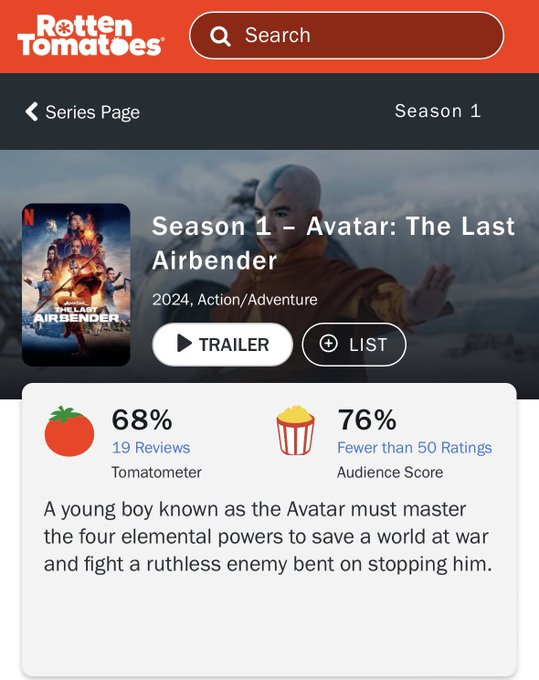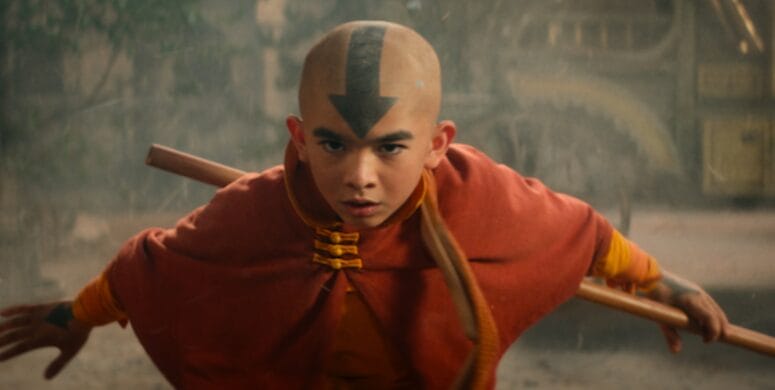Simply put, Netflix’s take on Avatar: The Last Airbender is bad. At best, the show serves as a constant reminder of how amazing the original Nickelodeon cartoon was. At worst, it makes M. Night Shyamalan‘s 2010 The Last Airbender film feel like a mercy because at least that poor effort was only 2 hours long. Granted, there are some saving graces. Most of the cast is good, with relative newcomer Dallas Liu (PEN15) as Fire Prince Zuko, veteran character actor Ken Leung (Industry) as Commander Zhao, and the great Daniel Dae Kim (Lost) as Fire Lord Ozai being the prime standouts (yes, the show is very pro-Fire Nation, at least in making that the best part of this first season). Additionally, the bending visual effects look fantastic. But none of these pros are enough to bring balance to this world.
From the opening minutes, it becomes clear that this live-action remake aims to be both a dark and violent fantasy epic for the post-Game of Thrones crowd, while also trying to capture the silly and cartoony fun of the source material. However, this balancing act of sorts never fully clicks in the 8-episode season.
Lol surprising no one the show is ass
Rotten tomato score




Which seem like they should have been fairly cheap to film and edit, too. You don’t need a ton of money to make The Warriors of Kyoshi or The Waterbending Scroll, but they add so much to the relationships between the characters and their personal arcs that they can’t just be condensed or skipped.
There’s definitely some fat to be cut. Particularly in Season One, its clear Nickelodeon demanded a certain amount of formulaic “And now Aang has to win a big fight again or the kids will get bored” plot that was more about selling action figures than pacing out a story. But one of the remarkable things about the series was how this otherwise droning repetition in kids’ shows gave service to a larger and more interesting overall narrative.